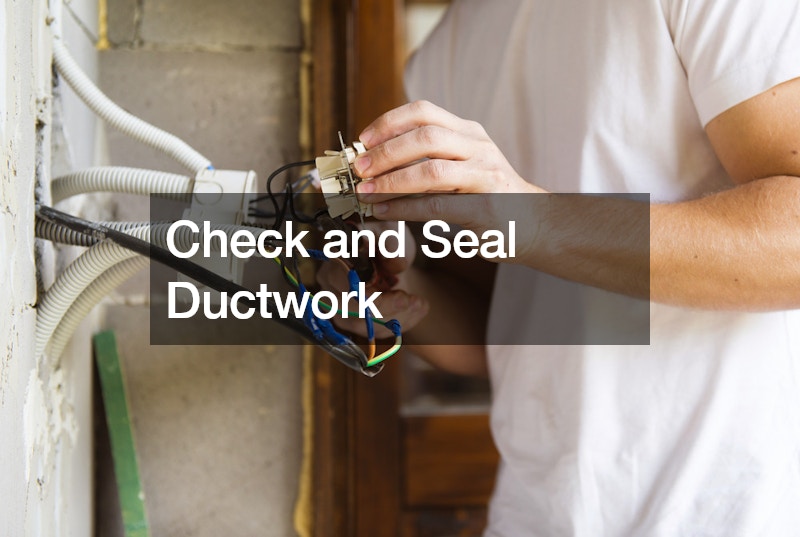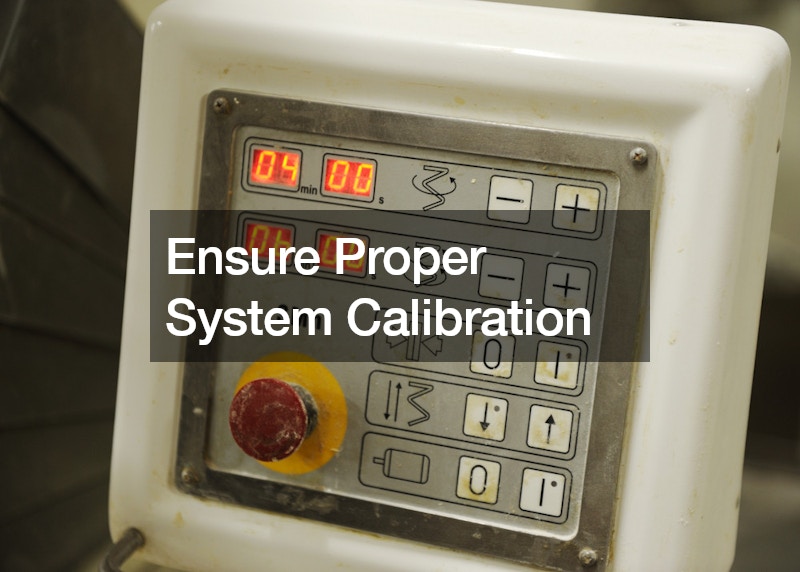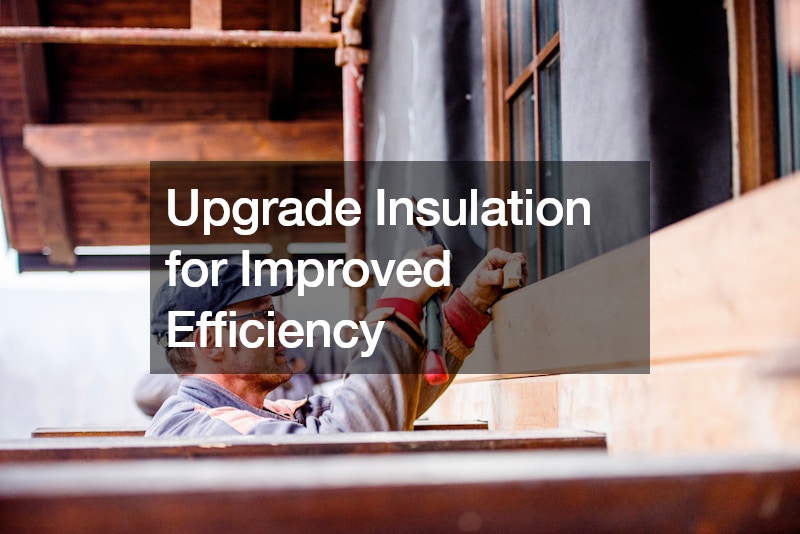Maintaining your HVAC system is vital to ensuring it operates efficiently and effectively throughout the year. Proper and continued maintenance can help extend the lifespan of your system, reduce energy costs, and enhance indoor air quality. Taking proactive measures and adhering to a regular maintenance schedule can prevent costly HVAC repairs and avoid unexpected breakdowns. This article provides comprehensive tips for keeping your HVAC in top shape, including professional inspections, routine cleanings, and technical checks. By following these guidelines, you can enjoy a comfortable and energy-efficient home environment. Let’s delve into the essential steps for maintaining your HVAC system.
Schedule Regular Professional Inspections

Regular professional inspections are crucial for identifying potential issues before they escalate into expensive HVAC repairs. An experienced technician can assess the system’s components such as the thermostat, blower motor, and ductwork. These inspections help in ensuring that each part of the system is functioning correctly, and any signs of wear or malfunction are promptly addressed.
Additionally, professional inspections facilitate continued maintenance, which is essential for optimizing your HVAC system’s performance. During these visits, the technician will make necessary adjustments and calibrations, enhancing the unit’s efficiency and extending its life. Regular check-ups may include lubrication of moving parts, tightening electrical connections, and ensuring the system is operating at peak performance.
Technicians also check for issues such as refrigerant leaks, airflow problems, and electrical faults, which can significantly impact your system’s efficiency and lifespan. By scheduling these inspections at least twice a year, typically in the spring and fall, you can prepare your HVAC for peak seasons. This proactive approach minimizes the risk of unexpected breakdowns and reduces the need for emergency residential air conditioning contractors. In the long run, continued maintenance leads to a more reliable and efficient system, ultimately saving you money and extending the life of your HVAC investment.
Replace Air Filters Regularly
Replacing air filters regularly is one of the simplest yet most effective HVAC maintenance tasks. Clogged or dirty filters restrict airflow, causing the system to work harder to maintain the desired temperature. This not only increases energy consumption but also accelerates wear and tear on the HVAC components, potentially leading to more frequent repairs and higher costs.
Engage in continued maintenance by checking the air filters every month and replacing them every one to three months or as recommended by your HVAC service technician. High-efficiency filters may offer improved filtration and longevity, but they also might require more frequent changes. The type and usage of the system will dictate the optimal schedule.
Additionally, consider investing in a filter with a higher MERV rating for better air quality and efficiency, especially if you have pets or live in a high-dust area. Regular filter replacement also improves indoor air quality by trapping dust, allergens, and other pollutants. A clean filter ensures that the air circulating in your home is healthier, which is particularly important for residents with respiratory issues or allergies. Consistent attention to the air filters not only supports the health of your HVAC system but also enhances overall home comfort and energy efficiency.
Clean the HVAC Coils
HVAC coils play a critical role in the cooling and heating process by transferring heat. Over time, dirt and debris can accumulate on the evaporator and condenser coils, reducing their efficiency. Dirty coils prevent the system from absorbing and releasing heat effectively, leading to increased energy usage and potential for air conditioning repair.
Implementing regular coil cleaning as part of your continued maintenance routine can significantly improve system performance. Cleaning the coils involves removing dust and grime using a soft brush, vacuum, or specialized coil cleaner. This task should be performed at least once a year, preferably during a professional HVAC Service visit.
Properly maintained coils not only ensure efficient operation but also extend the lifespan of your HVAC system. Keeping these components clean minimizes the strain on the system and reduces the likelihood of HVAC repairs. In essence, clean coils contribute to better energy efficiency and lower operational costs.
Check and Seal Ductwork

Ductwork is essential for distributing air throughout your home efficiently. Leaky or poorly insulated ducts can lead to significant energy loss, forcing your HVAC system to work harder to maintain comfort levels. Engaging a local heating and cooling company to inspect and seal your ductwork is a crucial step in improving system performance.
During these inspections, technicians will check for gaps, cracks, or disconnections in the ducts. Sealing these leaks with mastic, foil tape, or duct sealant can improve airflow and enhance energy efficiency. Ensuring that ducts are properly insulated also helps in maintaining the desired temperature without overburdening the HVAC system. In addition, technicians may use duct sealing methods such as Aeroseal, which can effectively seal hidden leaks from the inside, providing a more comprehensive solution.
Regularly inspecting and sealing ductwork as part of your continued maintenance routine not only saves energy but also improves indoor air quality. Properly maintained ducts distribute clean, filtered air throughout the home, reducing the presence of dust and allergens. This proactive measure can also extend the life of your HVAC system by reducing strain on components, ultimately lowering repair costs and enhancing overall home comfort. Ensuring your ducts are in good condition is essential for a reliable and efficient HVAC system.
Keep Outdoor Units Clear of Debris
Outdoor units, such as the condenser in an air conditioning system, require adequate airflow to operate efficiently. Leaves, grass, dirt, and other debris can accumulate around the unit, obstructing airflow and causing the system to overheat. Clearing these obstructions is a vital part of routine HVAC maintenance.
Residential air conditioning contractors recommend regularly inspecting the outdoor unit and clearing any debris within a 2-foot radius. Trim back bushes or plants to ensure at least a two to three feet clearance around the unit. This not only improves airflow but also prevents damage from overgrown vegetation. Additionally, ensure that the drain lines are free from blockages and that the condenser coils are clean to maintain optimal heat exchange and system efficiency.
Incorporating this into your continued maintenance schedule helps your system run more efficiently and reduces wear on the components. Clean outdoor units have an easier time releasing heat, which in turn enhances overall performance and prolongs the lifespan of your HVAC system. This simple task can prevent costly air conditioning repairs down the line and improve energy efficiency, potentially saving you up to 15% on cooling costs.
Check Thermostat Settings
Thermostat settings play a significant role in your HVAC system’s performance and energy consumption. Incorrect settings can cause your system to operate inefficiently, leading to higher energy bills and increased wear on the equipment. Regularly checking and adjusting your thermostat is crucial for maintaining optimal system performance.
Align your thermostat settings with your daily schedule to ensure comfort when you’re at home and energy savings when you’re away. Modern programmable thermostats and smart home technology offered by your local air and heating company can help automate this process, ensuring precise control and convenience. Consider using features like remote control and learning algorithms to adjust settings based on your habits and preferences, which can further optimize energy efficiency.
Incorporating thermostat checks into your continued maintenance routine ensures that your HVAC system operates efficiently and effectively. Proper settings reduce the strain on your system, promoting longer equipment life and lower energy costs. Additionally, maintaining accurate thermostat settings enhances overall home comfort. Regularly updating your thermostat’s schedule or settings as seasons change ensures you are always maximizing efficiency and staying comfortable throughout the year.
Ensure Proper System Calibration

System calibration is essential to ensure that your HVAC system is providing the correct heating and cooling outputs. Over time, various components may become misaligned or lose their balance, necessitating recalibration. A professional technician can assess and adjust these elements to optimize your system’s performance.
Proper calibration includes checking and adjusting the thermostat, sensors, and control systems to ensure they are operating accurately and efficiently. This ensures that your HVAC system maintains the desired temperature settings, improving comfort and reducing energy consumption. Regular calibration is a fundamental aspect of continued maintenance.
Technicians also check for discrepancies in the system’s temperature readings and airflow, adjusting settings to balance the system’s performance for optimal energy efficiency. Ensuring proper calibration also helps in identifying issues early, preventing potential breakdowns and expensive repairs. Regular professional calibrations, especially during seasonal maintenance visits, ensure your HVAC system operates reliably and efficiently throughout its lifespan, helping you avoid the cost of an early new furnace installation. This proactive approach extends the life of your HVAC equipment, maximizing your investment and maintaining a comfortable living environment.
Inspect and Maintain the Blower Motor
The blower motor is a critical component of your HVAC system, responsible for circulating air throughout your home. Over time, dust and debris can accumulate on the motor and its components, affecting its efficiency and leading to wear and tear. Regular inspection and maintenance of the blower motor are essential for optimal performance.
Engaging experienced plumbers or HVAC technicians for routine maintenance helps in cleaning and lubricating the blower motor, ensuring it runs smoothly. They will also check for any signs of electrical issues or wear on the belts and bearings that could lead to future problems. Proper maintenance prevents overheating and reduces the risk of a motor breakdown, which can be costly to repair or replace. Continued maintenance of the blower motor supports efficient system operation.
Paying attention to the blower motor as part of your HVAC maintenance routine not only prolongs the life of the motor itself but also enhances overall system efficiency. Regularly serviced blower motors can improve airflow, reduce energy consumption, and maintain consistent indoor temperatures. This care ensures that the air is circulated effectively, maintaining a comfortable indoor environment and reducing energy costs. Regular maintenance keeps your HVAC system running at peak performance.
Test System Operation
Regularly testing the operation of your HVAC system is crucial for identifying potential issues and ensuring it is running efficiently. During these tests, you can evaluate the system’s response to various settings, detect any unusual noises, and check for consistent airflow and temperature control. These tests are best performed by HVAC contractors during scheduled maintenance visits.
By testing the system’s operation, technicians can identify and address issues before they develop into significant problems requiring extensive HVAC repairs. Testing includes checking the functionality of thermostats, controls, and safety systems, ensuring each component works in harmony. Continued maintenance through regular testing ensures a reliable and efficient HVAC system.
Incorporating system testing into your routine maintenance schedule helps maintain optimal performance and prevents unexpected breakdowns. This proactive approach ensures that your HVAC system can handle seasonal demands, providing consistent comfort throughout the year. Regular testing and prompt attention to any issues keep your system in top condition and extend its lifespan.
Upgrade Insulation for Improved Efficiency

Upgrading insulation can significantly enhance your HVAC system’s efficiency by reducing heat loss and gain. Proper insulation helps maintain the desired indoor temperature with less effort from your HVAC system, leading to lower energy consumption and reduced strain on the equipment. This can be a highly effective aspect of overall system maintenance.
Quality insulation materials in walls, attics, and ductwork minimize the transfer of heat, keeping your home warmer in winter and cooler in summer. Discussing insulation upgrades with a heating and air conditioning professional can help you identify areas where improvements can be made, boosting your system’s performance.
Incorporating insulation upgrades into your continued maintenance plan not only improves efficiency but also enhances indoor comfort and reduces utility bills. By ensuring your home is well-insulated, you support the efficient operation of your HVAC system, prolonging its lifespan and avoiding unnecessary HVAC repairs. This investment in insulation pays off through improved home energy management.
Maintaining your HVAC system through regular inspections, routine cleaning, and proper component care is essential for optimal performance and longevity. Scheduling professional inspections, replacing air filters, cleaning coils, sealing ductwork, and ensuring clear outdoor units are all critical steps. Additionally, calibrating the system, maintaining the blower motor, testing its operation, and upgrading insulation contribute to a well-functioning, efficient HVAC system.


